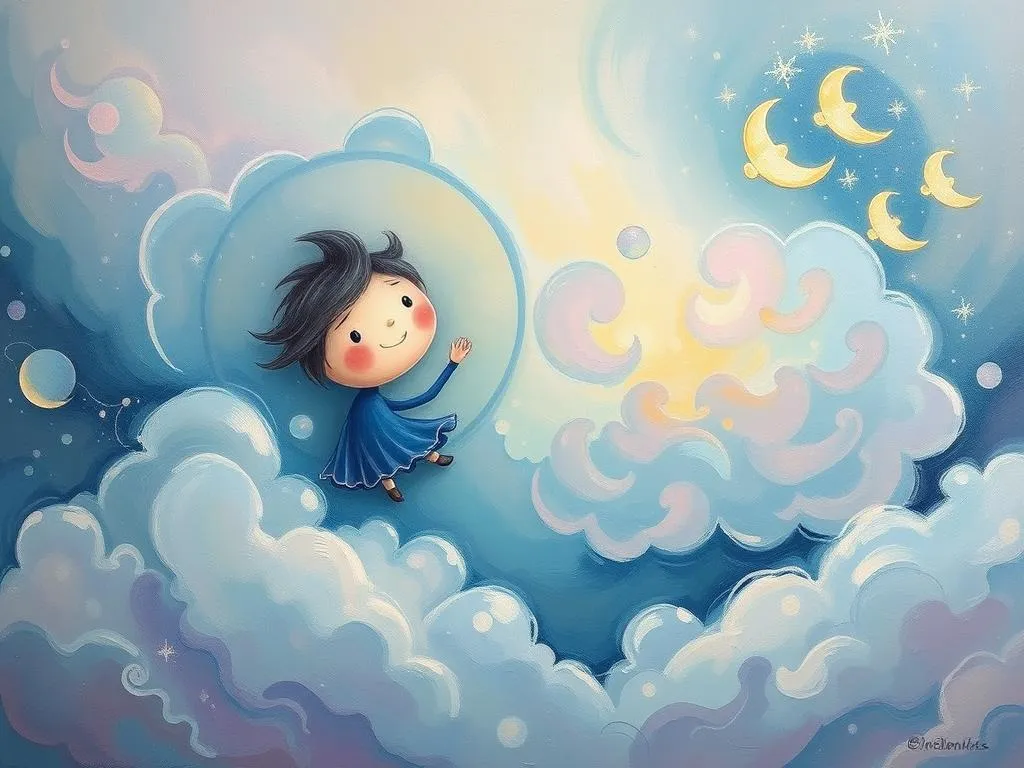
Dreaming is a mysterious journey into the realms of our subconscious. Some nights, we find ourselves lost in vivid landscapes, while other nights, we grapple with elusive emotions that defy easy explanation. These experiences often leave us pondering their meanings long after we awaken. Unknown feelings in dreams can serve as a mirror, reflecting our inner thoughts, struggles, and desires. So, let’s delve deeper into this intriguing phenomenon together, as a curious friend would.
When we dream of feelings that seem foreign or unidentifiable, it can be a perplexing experience. These emotions may appear suddenly, without any clear context or reason. Perhaps you woke up feeling an overwhelming sense of joy, sadness, or anxiety, yet couldn’t pinpoint why. In this article, we’ll explore the symbolism behind these unknown feelings, recount relatable experiences, and uncover the personal growth that can emerge from interpreting these dreams.
The Language of Emotion: Decoding Symbols
In the world of dreams, symbols often act as the language of the subconscious. Each feeling can represent a variety of underlying issues or thoughts that we might not be consciously aware of. For instance, an unknown feeling such as anxiety might symbolize unresolved conflict or an impending change in your life.
1. The Color Palette of Dreams
Colors play a significant role in how we feel. A dream awash in red may evoke passion or anger, while blue might signify calmness or sadness. If you experience an unknown feeling surrounded by vibrant colors, consider what each color represents to you personally.
2. The Characters of Your Dreams
The people present in your dreams often symbolize various aspects of yourself. If you dream of a stranger evoking strong emotions, it could indicate an unexplored side of your personality or an aspect of your life that requires attention.
3. Nature’s Touch
The environment in which your dream takes place can also influence your emotional state. A serene forest may evoke feelings of peace and tranquility, while a stormy sea might unleash feelings of chaos or confusion. Pay attention to the settings and their emotional undertones.
4. The Unseen Weight
Sometimes, unknown feelings manifest as a weight or heaviness in the dream. This can indicate emotional burdens you carry in your waking life, which you may not fully recognize. These feelings can serve as a prompt to explore what is weighing you down.
5. The Echo of Dreams
Recurring dreams often amplify unknown feelings. If a particular dream continues to surface, it may indicate that your subconscious is trying to communicate something important. The emotion may be uncomfortable, but it’s crucial to acknowledge it.
Interpreting the symbols in your dreams can be a powerful first step toward understanding the unknown emotions you encounter. The journey into your subconscious may seem daunting, but it can also be enlightening and transformative.
The Heart of the Matter: Real-Life Scenarios
To illustrate how unknown feelings manifest in dreams, let’s explore various scenarios that many of us can relate to. These examples not only highlight the diversity of emotions but also reflect the intricate tapestry of human experience.
1. The Dream of Losing a Loved One
Imagine dreaming about a beloved friend who suddenly vanishes. You wake up feeling a deep sense of grief and confusion, yet there’s no immediate reason for such emotions. This dream might symbolize an underlying fear of losing connections in your life or a fear of change. It serves as a reminder to cherish your relationships and communicate openly.
2. The Unfamiliar Stranger
You find yourself at a party filled with unfamiliar faces. Suddenly, one person catches your attention, igniting a feeling of inexplicable attraction or fear. This unknown feeling could represent unacknowledged desires or fears about new relationships or opportunities. It encourages you to explore what you truly want in your social life.
3. The Chaotic Workplace
Picture yourself in a dream where you’re overwhelmed at work, with tasks piling up and deadlines looming. You awaken with a sense of panic and uncertainty, even if your waking life is relatively calm. This dream reflects the pressures you may have subconsciously internalized, urging you to reassess your workload and set boundaries.
4. The Lost Journey
In another scenario, you dream of wandering through a vast landscape, unsure of your destination. A wave of confusion washes over you, and you feel lost. This could symbolize a lack of direction in your waking life, prompting you to reflect on your goals and aspirations. The journey might be unclear, but it encourages you to seek clarity and purpose.
5. The Unfinished Business
Finally, consider a dream where you’re in a classroom, unable to answer a question posed by an instructor. You awaken feeling embarrassment or inadequacy. This might indicate unresolved issues, guilt, or fears of failure that you need to confront. It’s an invitation to engage with your inner critic and find self-compassion.
These scenarios portray the rich tapestry of unknown feelings that we may encounter in our dreams. Each dream is a unique narrative that invites you to explore your emotional landscape and confront the deeper issues at play.
Awakening Potential: Growth Through Dream Analysis
As we navigate the maze of our emotions, dreams can act as powerful tools for personal growth. Understanding the unknown feelings we encounter in our dreams can lead to profound insights and transformative change.
1. Embracing Vulnerability
Dreams often expose our vulnerabilities, encouraging us to face what we fear or avoid. By embracing these feelings, we can cultivate resilience and self-awareness. Acknowledging the discomfort can be the first step toward healing and growth.
2. Journaling for Clarity
Keeping a dream journal can be a pivotal practice. Recording your dreams upon waking, along with any emotions you felt, allows you to track patterns over time. This practice can reveal recurring themes and help you connect the dots between your subconscious and conscious experiences.
3. Seeking Connections
Consider discussing your dreams with trusted friends or a therapist. Sharing your experiences can provide new perspectives and insights. A conversation about your feelings may lead to breakthroughs and understanding that you might not achieve alone.
4. Mindfulness and Reflection
Incorporating mindfulness practices, such as meditation or deep breathing, can help you become more attuned to your emotions. By creating space for reflection, you can explore the unknown feelings that arise in dreams and their relevance in your waking life.
5. Setting Intentions
Use the emotions you encounter in your dreams as a catalyst for positive change. Set intentions based on what you learn about yourself. Whether it’s improving relationships, addressing fears, or pursuing passions, these intentions can guide you toward a more fulfilling life.
As you engage with your dreams and the feelings they evoke, remember to be gentle with yourself. The journey of self-discovery can be both enlightening and challenging, but it ultimately leads to greater understanding and growth.
In conclusion, the unknown feelings that arise in dreams are not mere figments of our imagination; they are valuable insights into our emotional landscape. By decoding the symbols, exploring relatable scenarios, and embracing personal growth, we can turn these enigmatic feelings into opportunities for self-exploration and transformation.
The next time you wake from a dream filled with unknown emotions, take a moment to reflect. Allow yourself to feel, explore, and grow. The subconscious is a treasure trove of wisdom, waiting for you to unlock its secrets and embark on a journey of understanding. So, embrace the mystery, and let your dreams guide you toward a deeper connection with yourself.







